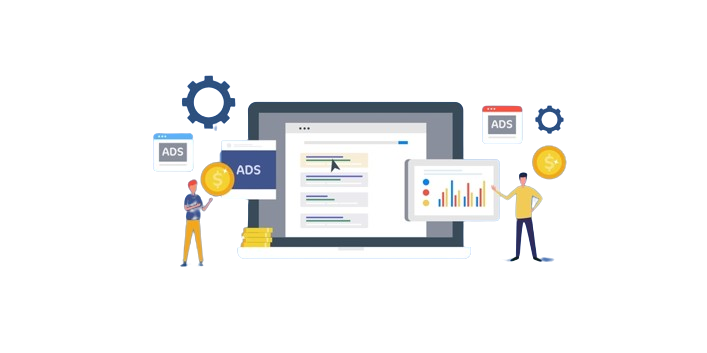Social Media Marketing

What Is Social Media Marketing (SMM)?
Social Media Marketing (SMM) refers to the use of social media platforms and websites to promote a product or service. It is a form of internet marketing that involves creating and sharing content on social media networks to achieve marketing and branding goals. Social media marketing includes activities like posting text and image updates, videos, and other content that drives audience engagement, as well as paid social media advertising.
Key aspects of Social Media Marketing
Content Creation: This involves developing content that is tailored to the context of each social media platform to drive user engagement. This content can include text posts, videos, and images.
Strategy Planning: Before beginning a social media campaign, it’s important to have a strategy in place. This includes setting goals, choosing the right platforms, deciding what type of content to publish, and how to measure success.
Community Engagement: This involves interacting with the audience through comments, messages, and posts. Engaging with users can build a community around a brand and foster a more personal connection with the audience.
Advertising: Many social media platforms offer targeted advertising options, allowing businesses to reach specific audiences with their message. This can be an effective way to increase visibility and drive conversions.
Analytics and Measurement: Utilizing analytics tools provided by social media platforms or using third-party tools to track the effectiveness of a social media campaign. Metrics such as engagement rates, follower growth, and conversion rates are important for understanding the impact of social media efforts.
Brand Building: Social media marketing helps in building a brand and establishing a brand voice through regular, consistent communication with the audience.
SEO Integration: Social media can also influence SEO (Search Engine Optimization) efforts by driving traffic to a business’s website and generating inbound links.
How does Social Media Marketing Work?
Social media marketing works by leveraging social media platforms to connect with your audience to build your brand, increase sales, and drive website traffic. This process involves publishing great content on your social media profiles, listening to and engaging your followers, analyzing your results, and running social media advertisements.
How it works:
Setting Clear Objectives: It begins with defining clear goals and objectives. This could include increasing brand awareness, driving website traffic, generating leads, or boosting sales. These objectives guide the overall strategy.
Understanding the Audience: Knowing who the target audience is and understanding their preferences, behaviors, and demographics is crucial. This helps in tailoring the content to the interests and needs of the audience.
Content Creation and Curation: This involves creating engaging, relevant, and valuable content to share on social media platforms. The content can be in various forms – text, images, videos, infographics, etc., and should be designed to resonate with the target audience.
Content Scheduling and Publishing: Regularly posting content on various social media platforms is key. Tools like content calendars and scheduling software can help manage this process efficiently.
Promotion and Advertising: Social media platforms offer paid advertising options. These ads can be targeted to specific demographics, locations, and user behaviors, making them a potent tool for reaching a wider audience or a very specific segment.
Engagement: This involves interacting with the audience through comments, messages, and posts. Prompt and thoughtful engagement can build a community around the brand and foster loyalty.
Analytics and Monitoring: Monitoring the performance of social media activities is crucial. This includes tracking metrics like engagement rates, reach, followers growth, and conversion rates. Tools like Google Analytics, Facebook Insights, and others provide valuable data.
Adjusting Strategies Based on Insights: Based on the analytics and feedback, strategies may be adjusted for better performance. This could involve changing the type of content, modifying posting schedules, or altering engagement techniques.
Influencer Marketing: Collaborating with influencers can be a part of social media marketing. Influencers can help in reaching a broader audience and add credibility to the brand.
Integrating with Other Marketing Efforts: Social media marketing often works best when integrated with other marketing strategies like email marketing, content marketing, and SEO.
Social media marketing is dynamic and constantly evolving. It requires staying up-to-date with the latest trends, platform changes, and best practices to effectively engage with the audience and achieve marketing objectives.

Why Is Social Media Marketing (SMM) So Powerful?
Social Media Marketing (SMM) is particularly powerful for several reasons:
Wide Reach: Social media platforms have billions of users worldwide. This vast audience provides businesses with an opportunity to reach a significant number of people that were previously unreachable through traditional marketing methods.
Targeted Advertising: Social media platforms offer advanced targeting options, allowing businesses to tailor their messages to specific demographics, interests, and behaviors. This means that businesses can reach the right audience with precision, increasing the effectiveness of their marketing efforts.
Cost-Effective: Compared to traditional advertising methods, social media marketing can be much more cost-effective. Creating a profile is free on most social media platforms, and paid advertising options are typically less expensive than traditional media.
Engagement and Interaction: Social media allows for direct interaction and engagement with customers and potential customers. Businesses can receive immediate feedback, answer questions, and create a community around their brand.
Brand Loyalty Building: By engaging with customers on social media, companies can build stronger relationships with their audience. Regular interaction and providing value can lead to increased brand loyalty.
Analytics and Insights: Social media platforms provide detailed analytics and insights into how well posts and campaigns are performing. This data allows businesses to make informed decisions and adjust their strategies for better results.
Increased Web Traffic and SEO: Sharing content from a business’s website to social media can increase web traffic. Additionally, social media can indirectly affect search engine rankings through increased engagement and visibility.
Viral Potential: Content on social media has the potential to go viral, reaching a massive audience rapidly. This can significantly boost brand visibility and recognition.
Brand Authority and Thought Leadership: Regularly posting insightful and valuable content can establish a business as a thought leader in its industry. This builds trust and credibility with the audience.
Accessibility and Customer Service: Social media makes businesses more accessible to customers, providing a platform for customer service and support, which can enhance customer experience and satisfaction.
The power of social media marketing lies in its vast reach, cost-effectiveness, targeted advertising capabilities, and the direct and meaningful engagement it fosters with audiences. This makes it an indispensable tool in modern marketing strategies.
Paid Social Media Marketing
Paid social media marketing refers to the process of paying for ad placements on social media platforms to reach a targeted audience. It’s a powerful tool for businesses looking to increase brand visibility, generate leads, and drive sales. Here’s an overview:
Platforms: Common platforms for paid social media marketing include Facebook, Instagram, Twitter, LinkedIn, Pinterest, and Snapchat. Each offers unique ad formats and targeting options.
Targeting Capabilities: One of the key strengths of paid social media is its targeting capabilities. Businesses can target audiences based on demographics, interests, behaviors, and location, and even retarget visitors who have interacted with their website or social media profiles.
Ad Formats: Paid social media offers a variety of ad formats such as image ads, video ads, carousel ads (multiple images or videos in a single ad), story ads, and more. These formats can be tailored to the campaign’s objectives and the platform’s user experience.
Budget and Bidding: Businesses can control their advertising spend by setting daily or lifetime budgets. Most platforms operate on a bidding system, where businesses set how much they are willing to pay per click (PPC) or per thousand impressions (CPM).
Objectives: Campaign objectives can vary greatly, including brand awareness, lead generation, website traffic, engagement, app installs, and sales. Advertisers choose objectives at the beginning of a campaign, which influences how ads are optimized and how success is measured.
Measurement and Analytics: These platforms provide comprehensive analytics to measure the performance of campaigns. Metrics such as impressions, clicks, engagement rates, and conversion rates are crucial for understanding ROI and optimizing future campaigns.
A/B Testing: Businesses often use A/B testing in their paid social media campaigns to compare different versions of ads to see which performs better. This helps in optimizing the ad content, design, and targeting for better results.
Retargeting: Paid social media allows for retargeting, where ads are shown to users who have previously interacted with the brand’s website or social media profile. This can be highly effective in nudging users down the sales funnel.
Integration with Other Marketing Efforts: Paid social media campaigns are often integrated with other digital marketing strategies like email marketing, content marketing, and SEO for a comprehensive marketing approach.
Compliance and Best Practices: Advertisers need to be aware of each platform’s advertising policies and best practices to ensure their campaigns are compliant and effective.
Paid social media marketing offers businesses a highly targeted, customizable, and measurable way to reach their audience, making it a valuable component of a digital marketing strategy.
